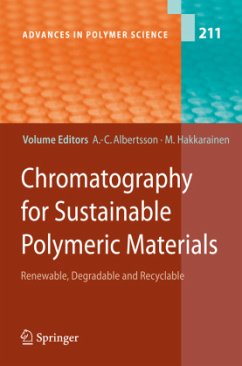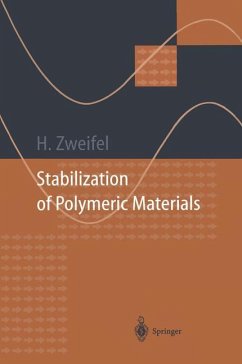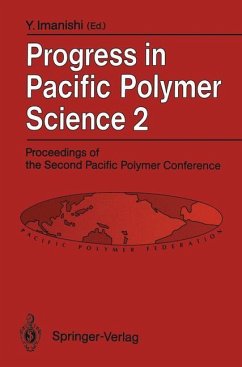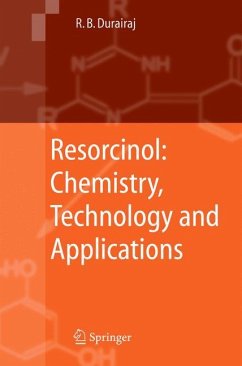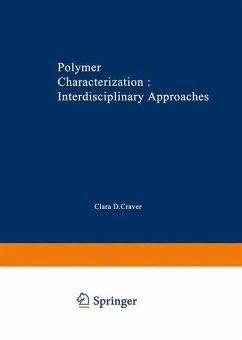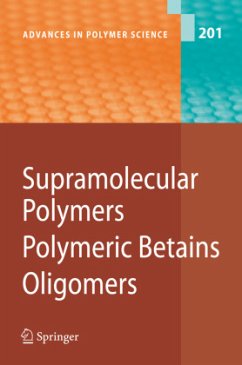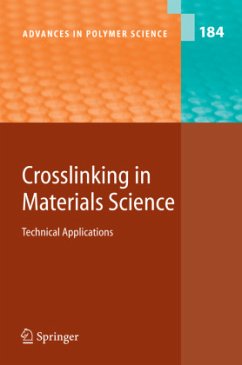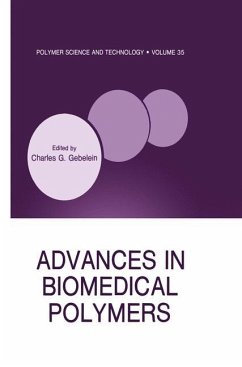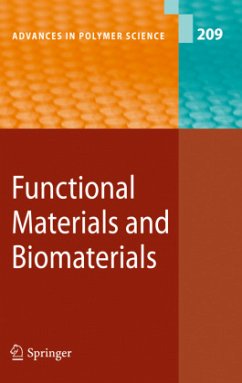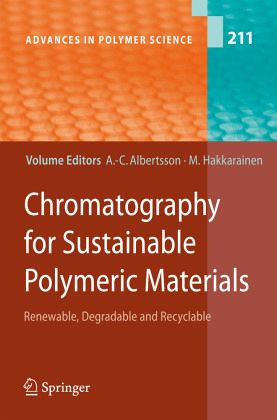
Chromatography for Sustainable Polymeric Materials
Renewable, Degradable and Recyclable
Herausgegeben: Albertsson, Ann-Christine; Hakkarainen, Minna;Mitarbeit: Albertsson, A.-C.; Burman, L.; Hakkarainen, M.; Gröning, M.; Strandberg, C.
Versandkostenfrei!
Versandfertig in 6-10 Tagen
151,99 €
inkl. MwSt.

PAYBACK Punkte
76 °P sammeln!
Polymericmaterials, both inert anddegradable,constantlyinteractwiththe surroundings. Because of this interaction changes take place in the polymer matrix and small molecules are released to the environment. Reliable me- ods for testing biodegradability and environmental interaction of renewable resources and biodegradable polymers are required to answer the rema- ing questions concerning the environmental impact of these future materials. Inthecaseofdegradablepolymersmultiplefactorsaffectthedegradation process and small changes in the chemical structure or product formulation may change the su...
Polymericmaterials, both inert anddegradable,constantlyinteractwiththe surroundings. Because of this interaction changes take place in the polymer matrix and small molecules are released to the environment. Reliable me- ods for testing biodegradability and environmental interaction of renewable resources and biodegradable polymers are required to answer the rema- ing questions concerning the environmental impact of these future materials. Inthecaseofdegradablepolymersmultiplefactorsaffectthedegradation process and small changes in the chemical structure or product formulation may change the susceptibility to degradation or cause different degradation product patterns, rendering the product less environmentally adaptable. - velopment of sustainable polymeric materials also demands the development of more migration-resistant polymer additives. Chromatographic techniques especially gaschromatographyandliquidchromatographypreferentially c- pled to mass spectrometric detection are ideal tools for studying these low molecular weight compounds and polymer environment interactions. In the ?rst chapter of this volume chromatographic ?ngerprinting and - dicator product concepts are presented as tools for evaluating polymeric - terials. These concepts have great potential in evaluation of degradation state andlife-time/service-life ofpolymericmaterials, evaluation ofanti-oxidant or pro-oxidant systems, degradation mechanism and processing parameters as wellasrapidcomparisonandqualitycontrolofmaterials.Thesolid-phase- croextractiontechniquehasrapidlyfoundapplicationsinnumerous?elds.The second chapter reviews the extraction of polymer degradation products and additives, monomer-rests, odour compounds, migrants from packaging and medicalproductsaswellasextractionofpolymeradditivesfromenvironm- talsamplesandbiological?uidsbysolid-phasemicroextractiondemonstrating the high versatility and potential of this technique also in polymer analysis.



